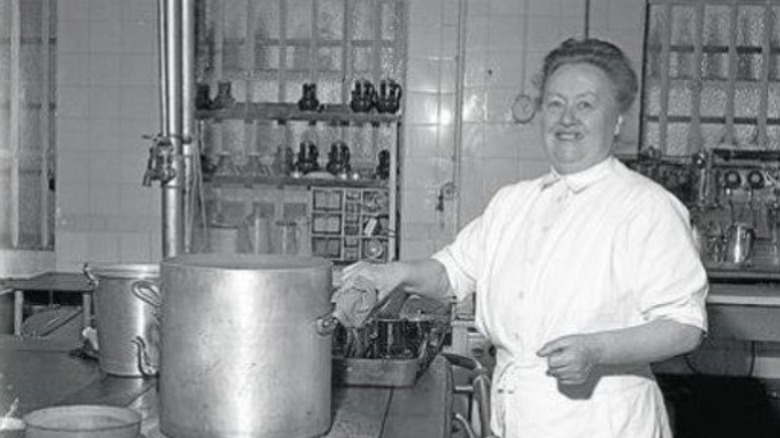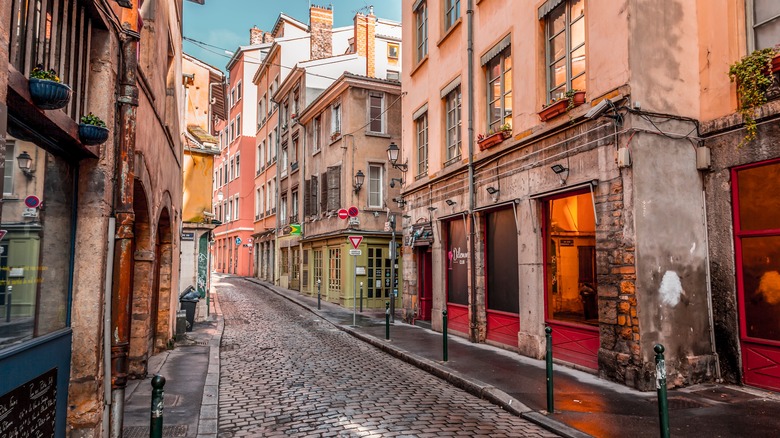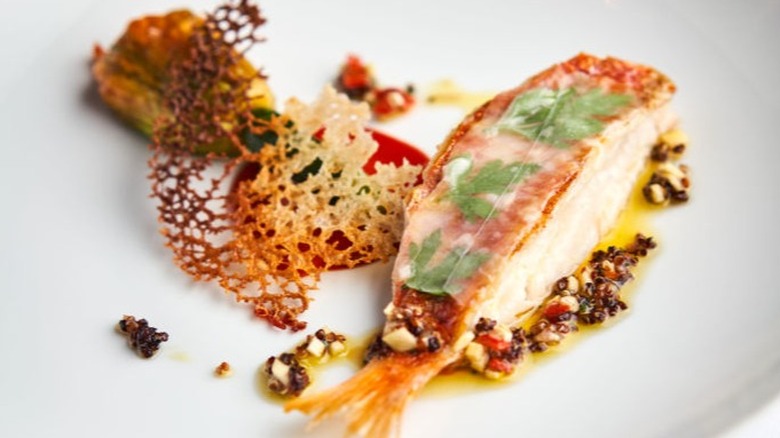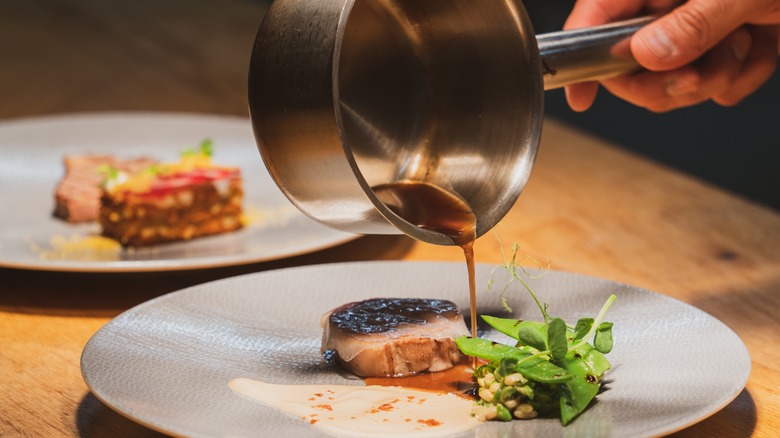The Negative Impact Misogyny Had On Chef Eugénie Brazier
Misogyny has run rampant in our world for centuries upon centuries, and the food world is no exception. Just typing the word "chef" into a Google image search will give you a reflection of our mass consciousness: the image of a chef as someone who is male and white dominates. Women, however, have been breaking the glass ceiling in kitchens for some time now: one needs to look no further than chefs like Clare Smyth (who ran a three-star Michelin restaurant), Alice Waters (the chef behind Chez Panisse), and the highly decorated Hélène Daroze (who inspired Colette in Pixar's Ratatouille).
But more often than not, females in the cooking world are known more for their affable personas and smiling faces that spawn media empires — think Giada De Laurentiis or Ina Garten — rather than someone dominating an intense kitchen. This bias is why Eugénie Brazier, who was at one point the chef to hold the most honors in the entire world, is largely unknown. The reason? Misogyny.
The early life of Eugénie Brazier
Brazier was born during summer, on a farm in Lyon a few years before the turn of the century in 1895. As she was born neither male nor wealthy, Brazier's early life did not set her up to become a chef. And yet, despite her humble beginnings — and the strict rules in France at the time that only allowed teenage boys to apprentice in kitchens — Brazier would go on to become a legend in the culinary world. Fortunately, Brazier acquired a knowledge of cooking through the tutelage of her mother, and was able to make two types of tarts by age five. Fourteen years later, her mother dead, and Brazier was pregnant, unmarried, and consequently kicked out of her home, forcing her to take a job as a nanny with a well-to-do family in Lyon.
Later on, her nanny responsibilities grew to include cooking, and when traveling, she learned more recipes from local hotel staff and by recreating dishes via observation and memory (much like another famous chef, Fu Pei-Mei). Post World War I, Brazier then began cooking at La Mère Filoux, where she was able to hone her skills and save up enough money to start a restaurant of her own — which is still in operation today.
La Mère Brazier opens in 1921 and gains recognition
Brazier took a leap of faith in 1921 and emptied her savings account to transfer a former grocery store and bar into her own restaurant: La Mère Brazier. Just twelve years later, she was given the highest honor to recognize her talents in the kitchen: three Michelin stars, making her likely the first female chef to accomplish such a feat (some dispute that it was Marie Bourgeois). Soon after, Brazier opened another restaurant, Col de la Luère, that also garnered three stars. At the time, she was the only chef to have six Michelin stars — a record she held for 65 years (via BBC).
Fast forward to post-World War II, Brazier began training other chefs that later went on to acquire culinary fame (such as Bernard Pacaud of L'Ambroisie), and her prowess was so well-known that France offered her its highest honor, the Legion of Honour. Brazier demurred, stating that the award should go towards more important things — her modesty didn't do her any favors to her legacy, but the gender bias against her was the worst offender.
The impact of misogyny on her legacy today
Despite Brazier's breaking of the proverbial glass ceiling by getting six Michelin stars in 1933, the world of fine dining is still dominated by men: only 6% of Michelin-star restaurants are run by women. Once Brazier died in 1997, her restaurant continued on for a few years and then shut down in 2004, until it was bought by Mathieu Viannay, who attributes Brazier's obscurity to her era when food media was less developed. Other food historians dispute this, stating that misogyny had a large role to play, since women were considered in the category of 'grandmother's style' of cooking, whereas men were automatically lumped into "haute cuisine", or those with classical training, and thus, those that merit a place in the history books.
However, there's been a movement to grow Brazier's legacy in proportion to her achievements: there's even a "Prix Eugenie Brazier" which awards female authors in the culinary world. There's hope yet for more female Michelin star chefs to come.



